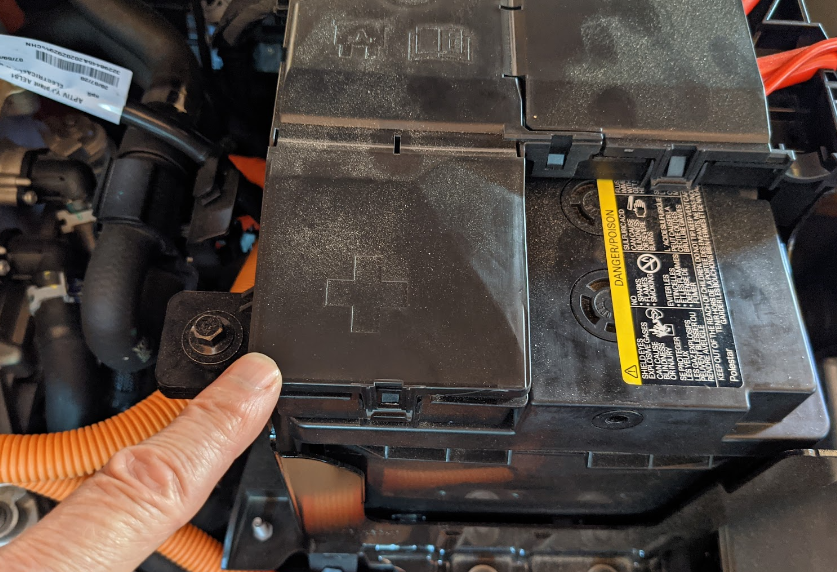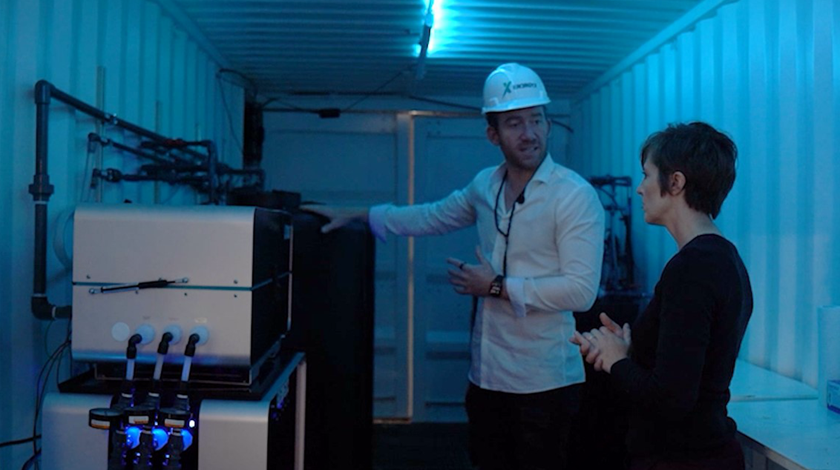Powering the Future: The Rise of the Battery Industrial Sector
In recent years, there has been a significant increase in the demand for batteries. From portable electronics to electric vehicles, batteries have become an essential part of our everyday lives. This growing demand has led to the rise of the battery industrial sector, which is now playing a crucial role in shaping the future of energy storage.
With the increasing concern for global warming and the need to reduce greenhouse gas emissions, there is a growing emphasis on renewable energy sources. However, one of the major challenges with renewable energy is the intermittent nature of sources such as solar and wind. This is where batteries come into play. They provide a reliable and efficient way to store excess energy generated during peak times and release it during periods of low production.
The battery industrial sector is not limited to just one type of battery. There are various types of batteries available, each with its own unique characteristics and applications. One of the most common types is the lithium-ion battery, which is widely used in portable electronics and electric vehicles. These batteries offer high energy density, long cycle life, and low self-discharge rates, making them ideal for applications that require a compact and lightweight power source.
In recent years, there have been significant advancements in battery technology, leading to the development of more efficient and cost-effective batteries. For instance, researchers are working on solid-state batteries, which offer higher energy density and improved safety compared to traditional lithium-ion batteries. These advancements are expected to revolutionize the battery industrial sector, making batteries more affordable and accessible to a wider range of applications.
The rise of the battery industrial sector has also created new opportunities for job growth and economic development. Battery manufacturing facilities require a skilled workforce to design, produce, and maintain batteries. As the demand for batteries continues to increase, so does the need for skilled workers in this sector. This has led to the creation of new jobs and the growth of local economies in regions where battery manufacturing facilities are located.
Furthermore, the battery industrial sector has also triggered innovation and research in related fields. Scientists and engineers are constantly exploring new materials and technologies to improve battery performance and energy storage capabilities. This has led to collaborations between universities, research institutions, and private companies, fostering a culture of innovation and technological advancement.
In addition to the environmental benefits and economic opportunities, the battery industrial sector is also driving the transition to a sustainable energy future. As more renewable energy sources are integrated into the power grid, there is a need for large-scale energy storage solutions. Batteries can play a crucial role in balancing supply and demand, stabilizing the grid, and enabling the integration of renewable energy sources on a larger scale.
However, the battery industrial sector is not without its challenges. One of the major concerns is the environmental impact of battery production and disposal. The extraction of raw materials, such as lithium, cobalt, and nickel, can have adverse effects on the environment if not managed properly. Additionally, the disposal of batteries after their end-of-life can lead to pollution if not handled through proper recycling processes.

To mitigate these challenges, there is a need for sustainable battery production and recycling practices. Governments and industry stakeholders are working together to develop regulations and standards for responsible battery manufacturing and disposal. Additionally, efforts are underway to develop new battery chemistries that rely on abundant and environmentally friendly materials.
In conclusion, the rise of the battery industrial sector is transforming the way we store and utilize energy. Batteries are becoming an indispensable component of our energy infrastructure, enabling the widespread adoption of renewable energy sources and driving the transition to a sustainable future. With ongoing advancements in battery technology and increasing investments in research and development, the future of the battery industrial sector looks promising.
-
 As urban areas become more congested and the need for sustainable transportation increases, electric bikes and scooters have emerged as popular alternatives to traditional modes of transportation. These vehicles offer a convenient and eco-friendly way to navigate through busy streets. At the heart of these electric rides lies the battery, providing the power needed to propel riders forward. In this...Citeşte mai mult
As urban areas become more congested and the need for sustainable transportation increases, electric bikes and scooters have emerged as popular alternatives to traditional modes of transportation. These vehicles offer a convenient and eco-friendly way to navigate through busy streets. At the heart of these electric rides lies the battery, providing the power needed to propel riders forward. In this...Citeşte mai mult -
 Introduction: In today's fast-paced world, where transportation plays a vital role, having a reliable power solution for your vehicle is of utmost importance. The 24V on-board battery charger is an efficient and convenient power solution that ensures your vehicle's battery remains charged at all times. In this article, we will explore the features, benefits, and applications of the 24V on-board...Citeşte mai mult
Introduction: In today's fast-paced world, where transportation plays a vital role, having a reliable power solution for your vehicle is of utmost importance. The 24V on-board battery charger is an efficient and convenient power solution that ensures your vehicle's battery remains charged at all times. In this article, we will explore the features, benefits, and applications of the 24V on-board...Citeşte mai mult -
 As the world becomes increasingly aware of the need to reduce our dependence on fossil fuels, many industries are exploring alternative sources of energy. One such industry is the automotive industry, which has been experimenting with lithium starter batteries as a potential replacement for traditional lead-acid batteries. These lithium batteries offer a number of advantages over their older counterparts, and...Citeşte mai mult
As the world becomes increasingly aware of the need to reduce our dependence on fossil fuels, many industries are exploring alternative sources of energy. One such industry is the automotive industry, which has been experimenting with lithium starter batteries as a potential replacement for traditional lead-acid batteries. These lithium batteries offer a number of advantages over their older counterparts, and...Citeşte mai mult -
 In today's fast-paced world, energy storage has become a crucial aspect of our daily lives. With the increasing demand for efficient and reliable power sources, traditional lead-acid batteries are slowly being replaced by the High Capacity 12V 200Ah LiFePO4 Lithium Battery. This powerful and efficient energy storage solution offers numerous advantages, making it an ideal choice for various applications. ...Citeşte mai mult
In today's fast-paced world, energy storage has become a crucial aspect of our daily lives. With the increasing demand for efficient and reliable power sources, traditional lead-acid batteries are slowly being replaced by the High Capacity 12V 200Ah LiFePO4 Lithium Battery. This powerful and efficient energy storage solution offers numerous advantages, making it an ideal choice for various applications. ...Citeşte mai mult -
 Lithium Iron Phosphate (LiFePO4) batteries are a type of rechargeable battery that has gained popularity in recent years due to their high energy density, long cycle-life, and low toxicity. They are commonly used in electric vehicles, renewable energy storage systems, and power tools. In this article, we will explore the features and benefits of LiFePO4 batteries and provide a comprehensive...Citeşte mai mult
Lithium Iron Phosphate (LiFePO4) batteries are a type of rechargeable battery that has gained popularity in recent years due to their high energy density, long cycle-life, and low toxicity. They are commonly used in electric vehicles, renewable energy storage systems, and power tools. In this article, we will explore the features and benefits of LiFePO4 batteries and provide a comprehensive...Citeşte mai mult -
 In recent years, battery technology has rapidly advanced, leading to the industrialization of battery production and storage. This transformation is poised to revolutionize the way we generate, store, and use energy. As the world strives to reduce carbon emissions and transition to renewable energy sources, battery technology is playing a critical role in enabling this transformation. The industrialization of...Citeşte mai mult
In recent years, battery technology has rapidly advanced, leading to the industrialization of battery production and storage. This transformation is poised to revolutionize the way we generate, store, and use energy. As the world strives to reduce carbon emissions and transition to renewable energy sources, battery technology is playing a critical role in enabling this transformation. The industrialization of...Citeşte mai mult -
 Lithium batteries have revolutionized the way we power our devices and vehicles. Among the many variants available in the market, the 100Ah lithium battery Lifepo4 stands out for its remarkable longevity. In this article, we will explore the reasons behind its long lifespan and the advantages it offers. Firstly, let\'s understand what Lifepo4 means. Lifepo4 is short for lithium...Citeşte mai mult
Lithium batteries have revolutionized the way we power our devices and vehicles. Among the many variants available in the market, the 100Ah lithium battery Lifepo4 stands out for its remarkable longevity. In this article, we will explore the reasons behind its long lifespan and the advantages it offers. Firstly, let\'s understand what Lifepo4 means. Lifepo4 is short for lithium...Citeşte mai mult

